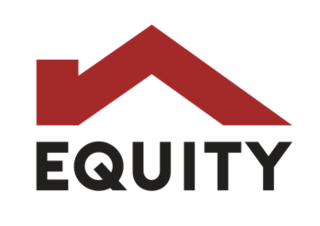
The United States Central Command is one of the eleven unified combatant commands of the U.S. Department of Defense. It was established in 1983, taking over the previous responsibilities of the Rapid Deployment Joint Task Force (RDJTF).

The Eighth Army is a U.S. field army which commands all United States Army forces in South Korea. It is headquartered at the Camp Humphreys in the Anjeong-ri of Pyeongtaek, South Korea. Eighth Army relocated its headquarters from Yongsan to Camp Humphreys in the summer of 2017. It is the only field army in the U.S. Army. It is responsible to United States Forces Korea and United States Army Pacific.
Hyundai is a South Korean industrial conglomerate ("chaebol"), which was restructured into the following groups:
Deposit insurance or deposit protection is a measure implemented in many countries to protect bank depositors, in full or in part, from losses caused by a bank's inability to pay its debts when due. Deposit insurance systems are one component of a financial system safety net that promotes financial stability.

The Republic of Korea Air Force, also known as the ROK Air Force or South Korean Air Force, is the aerial warfare service branch of South Korea, operating under the Ministry of National Defense of the Republic of Korea.

Yitzhak Hofi was a member of the Palmach, IDF General, chief of the Northern Command (Israel), and director of the Mossad.

The Korea Deposit Insurance Corporation (KDIC) is a deposit insurance corporation, established in 1996 in South Korea to protect depositors and maintain the stability of the financial system. The main functions of KDIC are insurance management, risk surveillance, resolution, recovery, and investigation.

Patrick M. Hughes is a retired United States Army officer who served as the 12th Director of the Defense Intelligence Agency (DIA). Previously, he was Director of Intelligence for the US Joint Chiefs of Staff from 1994 to 1996 and the Director of Intelligence at United States Central Command from 1992 to 1994. He was the Commanding General, United States Army Intelligence Agency, and the Assistant Deputy Chief of Staff for Intelligence, U.S. Army from 1990 until 1992. He joined the United States Department of Homeland Security in 2003 as the Assistant Secretary for Information Analysis (Intelligence), and departed from DHS and Government service in March 2005.
The Republic of Korea Armed Forces's Defense Security Command (DSC) was founded as the Army Counter Intelligence Corps on October 21, 1950, and it functioned as the primary organization within the military charged with internal security, preservation of loyalty to the regime, and deterrence and investigation of subversion.
Dubai Bank Kenya (DBK), whose complete name is Dubai Bank Kenya Limited, but is often referred to as Dubai Bank, was a commercial bank in Kenya, the largest economy in the East African Community. It was licensed by the Central Bank of Kenya, the central bank and national banking regulator. The institution is not affiliated with Dubai Bank of United Arab Emirates or with that bank's parent company, Dubai Banking Group.

NKIA is an enterprise software vendor based in Seongnam, South Korea and headed by CEO Seon-Woo Lee. The company develops various kinds of operations management systems and additionally provides consulting system management and training services. It is a leading provider of homegrown ITSM solutions to the South Korean market. It was founded in 1999, with subsidiaries later formed in Singapore and Malaysia and an office in Beijing.
Yoo JaeHoon is the Chairman and President of the Korea Deposit Insurance Corporation (KDIC). He is also working as ex-officio Commissioner of the Financial Services Commission, and a member of the Executive Council of the International Association of Deposit Insurers (IADI).

Equity Group Holdings Limited (EGHL), formerly Equity Bank Group, is a financial services holding company based in the African Great Lakes region. EGHL's headquarters are in Nairobi, Kenya, with subsidiaries in Kenya, Uganda, Tanzania, South Sudan, Rwanda, Democratic Republic of the Congo and a representative office in Ethiopia.
SMEP Microfinance Bank Limited is a public limited company incorporate under the companies Act and licensed under the Microfinance Act regulated by the Central Bank of Kenya to offer banking services focusing on Group banking, SME & Church banking. SMEP has a subsidiary company, SMEP Insurance Agency, which provides insurance services to diverse customer insurance needs
Kenya Deposit Insurance Corporation is a statutory institution established under the Kenya Deposit Insurance Act, 2012. The Corporation is mandated to provide a deposit insurance scheme for customers of member institutions, to provide incentives for sound risk management and generally promote the stability of the financial system and prompt resolution.

The State Affairs Commission of the Democratic People's Republic of Korea (SAC) is defined by the 2016 constitution as "the supreme policy-oriented leadership body of State power" over North Korea. The current president of the SAC, which is defined by the same constitution, is the head of state of the nation, the Supreme Leader of North Korea.
Policy for Merger and Abolition of the Press is a South korean policy implemented by president Chun Doo-hwan in November of 1980 to limit the freedom of press.








